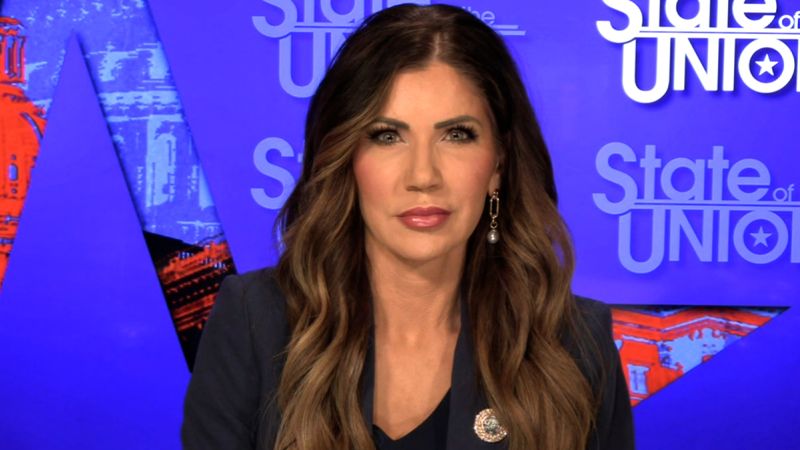Governor Kristi Noem of South Dakota recently made headlines by stating that she will continue to support former President Donald Trump in the 2024 presidential election, even if he loses his hush money trial. This decision highlights the ongoing loyalty that many Republicans have for Trump, despite the controversies surrounding his presidency. Noem’s unwavering support for Trump indicates the significant influence he continues to have within the Republican Party, as many politicians align themselves with him in hopes of gaining support from his loyal base of followers. By choosing to stand by Trump, Noem is positioning herself as a staunch supporter of the former president’s policies and agendas, signaling to voters where her priorities lie in terms of leadership and governance.
The hush money trial in question refers to allegations that Trump used campaign funds to pay off women who claimed to have had affairs with him. Despite the potential legal consequences that Trump may face as a result of these allegations, Noem remains committed to supporting him in his future political endeavors. This decision reflects the strong solidarity that many Republicans have for Trump, as they continue to prioritize political alliances over allegations of wrongdoing. By pledging her allegiance to Trump, Noem is sending a clear message to voters that she values loyalty and camaraderie within the party, even in the face of legal challenges and controversies.
Noem’s stance on supporting Trump in the 2024 presidential election over President Biden highlights the deep-rooted divisions within the Republican Party and the ongoing battle for control between Trump loyalists and more moderate conservatives. By openly declaring her allegiance to Trump, Noem is aligning herself with a faction of the party that remains steadfast in their support for the former president, despite criticisms from within the party and the broader political landscape. This decision also underscores the influence that Trump continues to wield over the Republican Party, as many politicians seek to gain favor with his base of supporters in order to further their own political ambitions.
The Republican Party’s continued support for Trump, even in the face of legal challenges and controversies, raises questions about the party’s future direction and the extent to which Trump will continue to shape its policies and priorities. Noem’s decision to stand by Trump in the 2024 presidential election underscores the ongoing power struggle within the party and the deepening divisions between those who support Trump and those who seek to distance themselves from him. As the party wrestles with its identity and future direction, politicians like Noem face mounting pressure to choose sides and align themselves with either the Trump loyalists or more moderate factions within the party.
In the lead-up to the 2024 presidential election, the Republican Party faces a critical juncture as it grapples with the legacy of Trump’s presidency and the ongoing challenges of navigating a deeply divided political landscape. Noem’s unwavering support for Trump signals the party’s continued allegiance to the former president and the enduring influence he holds over its members. As Republicans position themselves for the upcoming election, they must contend with the competing demands of appealing to Trump’s base of supporters while also addressing the concerns of more moderate conservatives who may seek a different path forward. With the party at a crossroads, politicians like Noem play a key role in shaping its future trajectory and determining the extent to which Trump will remain a central figure in its leadership and decision-making.
Overall, Governor Kristi Noem’s decision to support former President Donald Trump in the 2024 presidential election, despite potential legal challenges, underscores the ongoing influence that Trump wields within the Republican Party. As the party navigates a complex political landscape and faces deep divisions over its future direction, politicians like Noem must grapple with the competing demands of loyalty to Trump and the need to appeal to a broader base of voters. With the 2024 election on the horizon, the Republican Party faces a pivotal moment in determining its identity and leadership moving forward, as it seeks to navigate the legacy of Trump’s presidency and chart a path that reflects the diverse perspectives and priorities within its ranks.


